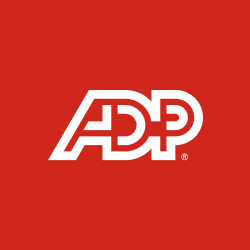insight
Understanding ICHRA (Individual Coverage Health Reimbursement Arrangement)
Need a health plan to help keep your employees healthy and productive?
Conventional business practice is to offer health benefits only to full-time employees. Adding part-time or seasonal workers to traditional group health plans is often cost-prohibitive. But there is a relatively new option that allows employers to extend benefits to more types of employees, helping attract and retain talent in the process without overextending budgets. It’s called an individual coverage health reimbursement arrangement (ICHRA).
Table of Contents
What is an ICHRA plan?
An ICHRA is a modern type of employer-sponsored health benefit. It allows businesses of all sizes to provide tax-free reimbursements to employees for individual health insurance premiums and other qualified medical expenses. For many companies, an ICHRA serves as a flexible and budget-friendly alternative to traditional, one-size-fits-all group health insurance plans.

How does an ICHRA work?
The ICHRA process is designed to be simple and empower employees with choice. It operates in four straightforward steps:
Step 1. Design benefits to fit individual needs
Employers set a monthly allowance, which is the maximum amount they will reimburse each person. The allowance total is flexible and can be adjusted for different classes of employees (e.g., full-time vs. part-time, salaried vs. hourly, or employees in different geographic locations).
Step 2. Employees make health care purchases
People can freely choose and purchase an individual health plan with the network of doctors, coverage levels and monthly premiums that meet their personal and family needs. Sole ownership lies with the employee, providing two significant benefits.
First, if employees already have qualifying health plans they like, they can keep them. Second, the plan is fully portable and stays with them even if they leave the company.
Step 3. Employees submit proof of incurred expenses
To receive reimbursement, employees must prove they have qualifying health insurance coverage. They then submit claims for their monthly premiums and other eligible medical expenses to their employer or a designated third-party administrator (TPA). Use of TPAs is more common for privacy and compliance purposes.
Step 4. Review and reimburse expenses
The employer or TPA reviews the submitted claims. If approval is granted, employees are reimbursed up to the predetermined allowance amount. These reimbursements are entirely tax-free for the employee and tax-deductible for the employer.
What challenges do employers face with traditional group insurance?
Employers often seek alternatives to traditional group plans to solve several common challenges:
- Rising health insurance costs
Traditional group plans are prone to unpredictable and often significant premium hikes at each annual renewal. This lack of cost control is a central pain point for small and midsize businesses that rely on stable budgets. - Recruiting and retention challenges
A single group plan rarely meets the diverse health care needs of every person, which can be a disadvantage when trying to attract and retain top people. - Affordable Care Act (ACA) compliance risks
Managing the ACA's complex affordability and minimum value requirements can be a significant administrative burden for applicable large employers (ALEs).
What types of businesses can offer an ICHRA?
Any employer with at least one employee can offer an ICHRA, making it an accessible option for businesses of all types and sizes, including for-profits, non-profits and government entities.
Can S corporation owners participate in an ICHRA?
Owners who hold more than a 2% stake in an S corporation are generally not eligible to participate tax-free because the reimbursements would be considered taxable income.
Can C corporation owners participate in an ICHRA?
C corporation owners are considered employees and are fully eligible to participate in an ICHRA.
Can sole proprietors participate in an ICHRA?
No, because sole proprietors are not employees. However, if a spouse is employed by the business, the owner may gain coverage as a dependent on the spouse's reimbursed plan.
Can partners in a partnership participate in an ICHRA?
No, partners are considered self-employed and, thus, are not eligible to participate in an ICHRA tax free. As with a sole proprietorship, a partner could potentially gain coverage through a spouse who is employed by the partnership.
Can LLC owners participate in an ICHRA?
Eligibility depends on how the LLC is taxed. If the business is taxed as a C corporation, the owners may participate in an ICHRA. If the business is taxed as an S corporation or partnership, the limitations for those respective structures apply.
Is an ICHRA right for a business? Benefits and considerations
Key benefits of an ICHRA
- Budget control: Employers set fixed monthly allowances, eliminating unpredictable premium hikes and making health-care costs predictable.
- Employee choice: People can choose any qualifying health plan that fits their unique health needs, network preferences and budget.
- Tax advantaged: Reimbursements are tax-deductible for the employer and tax-free for the employee when the plan is administered correctly.
- Simplified administration: ICHRAs alleviate an employer's burden of managing a complex group plan, especially when using an HRA administrator to handle compliance and reimbursements.
Potential drawbacks and compliance considerations
ICHRAs are subject to federal regulations, like the Employee Retirement Income Security Act (ERISA), the Consolidated Omnibus Budget Reconciliation Act (COBRA) and the Health Insurance Portability and Accountability Act (HIPAA). Employers must ensure their plan documents and administration fully comply with these laws.
An ICHRA can also negatively impact tax credit eligibility. Specifically, people who are offered an affordable ICHRA are no longer eligible for premium tax credits, or subsidies, on the Health Insurance Marketplace, even if they decline the employer's offer.
Supporting ACA compliance: The ICHRA affordability rule explained
If a business is subject to the ACA, its monthly ICHRA offer must be large enough to make a standard, mid-level health plan affordable to employees. In other words, employees’ out-of-pocket costs for the cheapest “Silver” plan in their area cannot exceed a set percentage of their total household income.
Employers may not know each employee’s household income, which is why the IRS provides several methods to calculate compliant and affordable ICHRA offers. These calculations can sometimes be complex. Employers may want to rely on TPAs and benefits software to ease administrative burdens and support compliance.
How does an ICHRA compare to other types of HRAs?
ICHRA vs. QSEHRA
A qualified small employer health reimbursement arrangement (QSEHRA) is only available to businesses with fewer than 50 employees. Unlike an ICHRA, QSEHRAs have annual IRS-mandated contribution limits and offer less flexibility in how allowances are structured across different employee types.
ICHRA vs. GCHRA
A group coverage health reimbursement arrangement (GCHRA) must be paired with a traditional group health plan to reimburse out-of-pocket costs. In contrast, an ICHRA is a standalone benefit used to reimburse people for individual health insurance, and it cannot be extended to the same class of employees who are also offered a group plan.
Frequently asked questions about ICHRA
What is considered an eligible expense for an ICHRA?
With an ICHRA, employers may reimburse employees for only health insurance premiums or for both premiums and qualified medical expenses. Such expenses include the costs to diagnose, treat and prevent disease, as well as the equipment and supplies needed for those purposes. A full definition of qualified medical expenses is available in IRS publication 502.
What's the difference between an ICHRA and other types of HRAs (ICHRA vs. QSEHRA)?
Compared to other HRAs, ICHRAs are more flexible because employers can choose how much they’re willing to reimburse, and there’s no reimbursement maximum. ICHRAs are also available to organizations of all sizes, unlike QSEHRAs, which are limited to employers with less than 50 employees.
Is an ICHRA allowance considered income?
Reimbursements that employees receive through an ICHRA are generally not subject to income tax or Federal Insurance Contribution Act (FICA) taxes.
How do I know if my employees' health coverage is ICHRA-qualified?
Subtract the monthly amount reimbursed to the employee from the monthly premium for the lowest-cost Silver plan for self-only coverage in the employee’s area. If the result exceeds 8.39% of 1/12 of the employee’s household income for the tax year, the ICHRA does not meet ACA affordability standards.
What alternatives to ICHRA are available to employers?
Depending on the size of their company, employers may offer a traditional HRA or a QSEHRA. They may also sponsor group health insurance, though they may not allow employees to choose between a cafeteria plan and an ICHRA.
How does an ICHRA affect employee eligibility for premium tax credits?
If employers sponsor an affordable ICHRA, their employees lose eligibility for premium tax credits. However, if the ICHRA offer is deemed unaffordable, the employee can choose between accepting the ICHRA or declining it and claiming their tax credits in the Health Insurance Marketplace.
How can employees find an ICHRA-qualified health plan?
Employees participating in an ICHRA can purchase a plan that provides minimum essential coverage from the Health Insurance Marketplace (HealthCare.gov), their state's official exchange or directly from insurance companies. However, it is highly recommended that they work with a licensed health insurance broker, such as ADPIA®, to help them evaluate their options effectively.
This article is intended to be used as a starting point in analyzing ICHRA and is not a comprehensive resource of requirements. It offers practical information concerning the subject matter and is provided with the understanding that ADP is not rendering legal or tax advice or other professional services.
Want more exclusive business insights like this delivered to your inbox?Subscribe now



